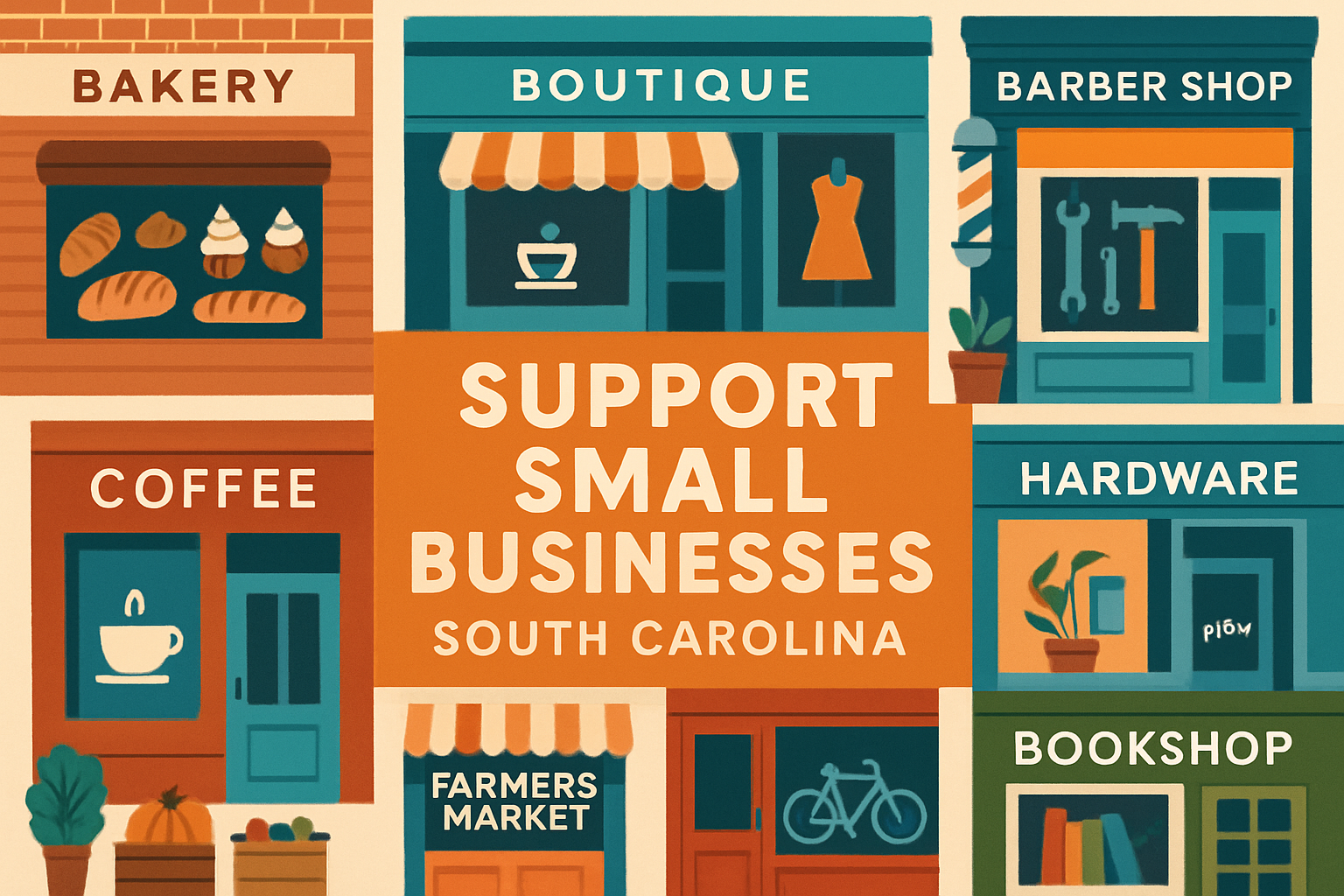Financing Your Small Business in South Carolina: Funding Options and Tips
South Carolina’s economy is fueled by small businesses across industries like manufacturing, agriculture, tourism, and retail. From Charleston’s thriving hospitality sector to Columbia’s startups and Greenville’s growing manufacturing base, entrepreneurs play a vital role in creating jobs and driving growth. To scale operations or launch new ventures, many turn to small business financing in South Carolina.
This guide highlights SBA loans, state programs, and funding tips for South Carolina entrepreneurs.
Why Financing Matters for South Carolina Businesses
-
More than 460,000 small businesses operate in South Carolina, making up over 99% of all companies in the state.
-
Capital is essential for industries such as tourism, advanced manufacturing, and agriculture.
-
SBA loans and state programs provide affordable financing with flexible repayment terms.
Loan Options for South Carolina Small Businesses
Traditional Bank Loans
South Carolina banks and credit unions—including South State Bank, First Citizens Bank, and Palmetto Citizens—offer commercial loans. These usually require strong credit and detailed financial documentation.
SBA Loans in South Carolina
The U.S. Small Business Administration partners with lenders across the state to expand credit access. Options include:
-
SBA 7(a) Loans: Up to $5 million for working capital, property, or refinancing.
-
SBA 504 Loans: Long-term, fixed-rate loans for facilities and major equipment.
-
SBA Microloans:Up to $50,000 for startups and very small businesses.
-
SBA Disaster Loans: Available for recovery after hurricanes, flooding, or other natural disasters.
State and Local Financing Programs
-
South Carolina Jobs-Economic Development Authority (JEDA): Offers bond financing and loan programs to support businesses.
-
South Carolina Department of Commerce: Provides grants, incentives, and loan resources.
-
Local revolving loan funds from regional development agencies and municipalities.
Alternative Financing Options
-
Business lines of credit for flexible cash flow.
-
Equipment financing for manufacturers, farmers, and service providers.
-
Invoice factoring for businesses waiting on client payments.
-
Online lenders offering fast approvals, though often at higher interest rates.
Eligibility and Requirements
Most South Carolina lenders consider:
-
Personal and business credit history.
-
Tax returns and financial statements.
-
A detailed business plan with growth projections.
-
Collateral for larger loans.
-
Loan purpose and repayment capacity.
Steps to Apply for a South Carolina Business Loan (Featured Snippet Section)
-
Check eligibility and credit score
-
Gather financial and tax documents
-
Write or update your business plan
-
Compare SBA, state, and local programs
-
Contact SBA-approved or local lenders in South Carolina
-
Submit loan application with documents
-
Await approval and funding
Industries Benefiting Most in South Carolina
-
Tourism and hospitality businesses in Charleston and Myrtle Beach.
-
Advanced manufacturing and automotive companies in Greenville.
-
Agriculture and forestry businesses across rural South Carolina.
-
Local restaurants, retailers, and service providers using SBA microloans.
Resources for South Carolina Entrepreneurs
-
SBA South Carolina District Office (Columbia) for SBA programs and guidance.
-
South Carolina Jobs-Economic Development Authority (JEDA) for financing options.
-
South Carolina Department of Commerce for grants and incentives.
-
South Carolina SBDC Network for free consulting and loan preparation.
Common Mistakes to Avoid
-
Applying without a clear repayment strategy.
-
Overlooking JEDA and state-backed programs.
-
Borrowing more than cash flow can sustain.
-
Ignoring SBA disaster loans after hurricanes or flooding.
Future of Business Financing in South Carolina
-
Growth in financing for green energy and sustainable industries.
-
More state-level programs to support rural businesses.
-
Expansion of SBA-backed lending for minority- and women-owned companies.
Conclusion: Financing Your Small Business in South Carolina – Funding Options and Tips
From Charleston’s thriving tourism economy to Columbia’s startups and Greenville’s manufacturers, South Carolina entrepreneurs have diverse financing opportunities. SBA loans, state-backed initiatives, and local resources provide the capital needed for growth and stability.
Ready to secure funding? Start by contacting the SBA South Carolina District Office, explore JEDA and Department of Commerce programs, and connect with your local SBDC. With the right preparation, your South Carolina business can thrive.











